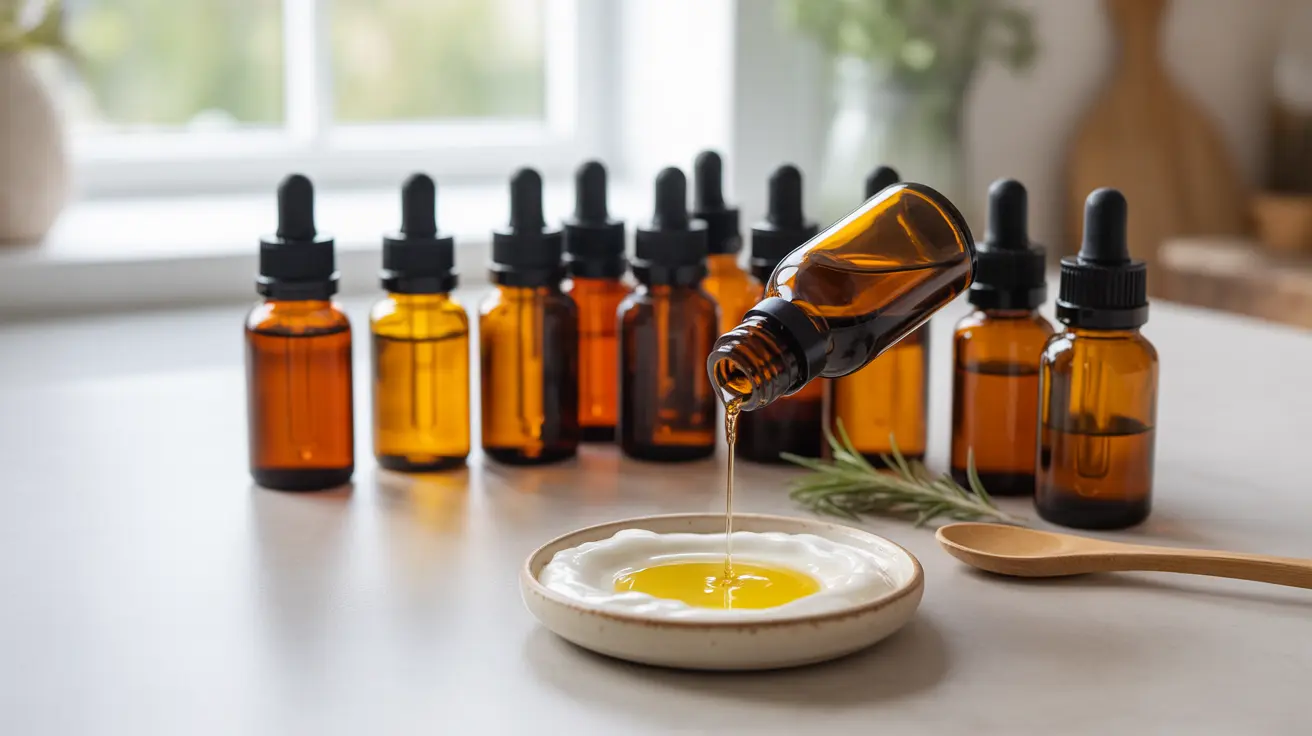Living with eczema can be challenging, and many people seek natural remedies to manage their symptoms. Essential oils have gained attention as a complementary approach to eczema care, but it's crucial to understand both their potential benefits and risks before incorporating them into your skincare routine.
This comprehensive guide explores how essential oils might help with eczema symptoms, which oils are considered beneficial or potentially harmful, and proper usage guidelines to ensure safety and effectiveness.
Understanding Essential Oils and Their Role in Eczema Management
Essential oils are concentrated plant extracts that contain various compounds with potential anti-inflammatory, antimicrobial, and soothing properties. While they're not a cure for eczema, some people find them helpful in managing symptoms when used correctly as part of a broader treatment plan.
Beneficial Essential Oils for Eczema
Several essential oils have shown promise in helping manage eczema symptoms:
- Tea Tree Oil: Known for its antimicrobial properties
- Lavender Oil: Contains anti-inflammatory compounds
- Chamomile Oil: Offers soothing and calming effects
- Eucalyptus Oil: May help reduce inflammation
- Geranium Oil: Can help balance skin moisture
Safety Considerations and Proper Usage
Essential oils are highly concentrated and must be used with caution, especially on sensitive or compromised skin like eczema-prone areas. Following proper dilution and application guidelines is crucial for safety.
Proper Dilution Guidelines
Always dilute essential oils in a carrier oil before applying to the skin:
- Use a 1-2% dilution (6-12 drops per ounce of carrier oil)
- Choose gentle carrier oils like:
- Coconut oil
- Jojoba oil
- Sweet almond oil
- Olive oil
Patch Testing
Before using any essential oil, perform a patch test:
- Apply a small amount of diluted oil to your inner arm
- Wait 24 hours to check for any adverse reactions
- Discontinue use if irritation occurs
Potential Risks and Contraindications
While essential oils can be beneficial, they also carry potential risks, especially for people with sensitive skin or active eczema flares:
- Skin irritation or allergic reactions
- Worsening of existing eczema symptoms
- Photosensitivity with certain oils
- Interactions with medications
Frequently Asked Questions
What are the benefits and risks of using essential oils for eczema symptoms?
Benefits include potential anti-inflammatory and soothing effects, while risks include skin irritation, allergic reactions, and possible worsening of symptoms. Always consult with a healthcare provider before starting essential oil use.
Which essential oils are considered helpful or harmful for eczema skin?
Helpful oils include lavender, chamomile, and tea tree oil when properly diluted. Harmful oils can include citrus oils, which may cause irritation, and cinnamon oil, which can be too harsh for sensitive skin.
How should essential oils be properly diluted and applied to avoid irritation in eczema?
Essential oils should be diluted to 1-2% strength in a carrier oil (6-12 drops per ounce). Apply only to unbroken skin and always perform a patch test first.
Can essential oils cause allergic reactions or worsen eczema skin conditions?
Yes, essential oils can trigger allergic reactions or exacerbate eczema symptoms, especially if used undiluted or on active flares. Always patch test and discontinue use if irritation occurs.
Is it safe to use essential oils for eczema in children or pregnant women?
Extra caution is needed for these groups. Many essential oils are not recommended for children or pregnant women. Always consult with a healthcare provider before use, and consider avoiding essential oils altogether for these populations.
Remember to always prioritize proven medical treatments for eczema and consider essential oils as a complementary approach only after consulting with your healthcare provider.




